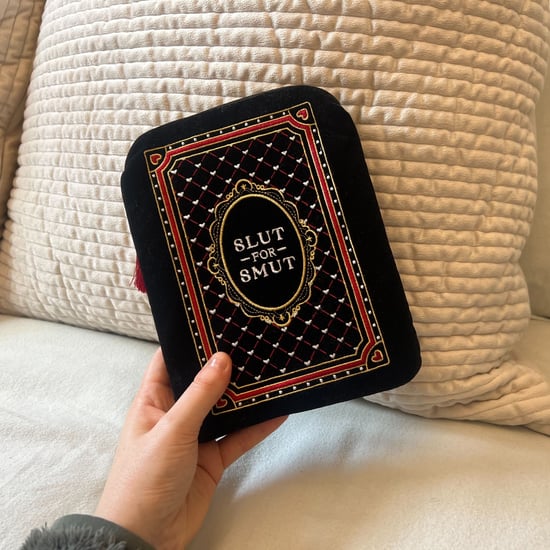Is Anal Sex Safe?
The Most Important Thing to Stay Safe During Anal Sex

Safe anal sex is more than just getting lubed up and ready to go. It tends to take at least some planning and requires being comfortable enough with each other to handle any awkwardness or mess that comes along with the sometimes tricky act. There are also a few ways to prepare your body so anal play stays satisfying.
"Anal intercourse is safe, with a major caveat. It is only safe if done with the proper preparation and precautions. If not, it is actually one of the riskiest forms of sex in terms of both injury and sexually transmitted infections (STIs)," said Dr. Laurie Mintz, a licenced psychologist, human sexuality expert, and author of Becoming Cliterate: Why Orgasm Equality Matters — and How to Get It.
Dr. Jenny Robinson, assistant professor of gynecology and obstetrics at the Johns Hopkins University School of Medicine, confirms there are quite a few infections that can be contracted during anal sex, but there are precautions you can take to ensure this doesn't happen. "Receptive anal intercourse (RAI) will not lead to pregnancy, but it is possible to acquire a sexually transmitted infection, including HPV, herpes, chlamydia, gonorrhea, and HIV," she explained.
In order to combat the risk of infection, Robinson says condoms should be used during the deed. "Use condoms consistently and correctly. Make sure to use a lubricant that is compatible with condoms. For example, latex condoms can be used with water-based and silicone lubricants, but should not be used with oil-based lubricants, such as baby oil, edible oils, whipped cream, hand and body lotions, massage oil, or petroleum jelly. These oil-based lubricants can reduce the integrity of latex condoms, increasing the chance that they could break or otherwise allow exchange of bodily fluids, increasing infection risk," she explained.
Extra precautions must be taken with heterosexual couples switching from anal to vaginal sex in order to ensure bacteria doesn't transfer and ends up causing an issue. "If a heterosexual couple has anal sex, they shouldn't immediately have penile-vaginal sex afterwards. Make sure to remove the condom that was used for anal sex and place a new condom on before having vaginal sex," Robinson emphasizes. "There are different types of bacteria that normally live in the vagina and rectum, and you don't want to bacteria to travel. That can increase that chance that the female partner develops a vaginal infection or other unpleasant vaginal symptoms."
Now that you know the most important way to stay safe, let's get into the details. Mintz and Robinson have several tips to prepare yourself for safe and enjoyable anal penetration:
- Practice by yourself, in the shower or bathtub, for a few weeks ahead of your first anal sex experience by inserting your finger in your anus. "The bath or the shower is recommended because it's relaxing," says Mintz. You can also use an anal toy to masturbate, says Mintz.
- Practice with your partner. Have your partner insert her or his fingers a bit upwards toward the tailbone since this is how the anus curves. Push in slowly, and stop with any resistance. Your goal is to loosen and prepare the anus, not force anything. As your partner's fingers go in, push down like you are having a bowel movement. This will help you relax your anal sphincter muscles, which are the internal and external muscles in and around the anal cavity. Only after you've learned to relax your anal sphincter muscles should you attempt anal intercourse. Even then, proceed slowly. Mintz added that if you feel any discomfort other than a feeling of fullness inside, you should stop.
- During anal sex, remember there is no need for deep thrusting. Most of the nerves that feel good to be stimulated are near the outside or just inside of the anus. Once a finger, a penis or a toy is inside the anus, there shouldn't be thrusting. The penis or toy should simply stay in place and then be moved in circles. If either partner wants thrusting, it's also a good idea to remove the toy or penis and add more lube first, said Mintz. "Anal sex shouldn't be painful," says Robinson. "If the receptive partner experiences pain or bleeding from the anus, stop what you're doing right away. If the pain or bleeding doesn't stop quickly, you may need to seek medical attention."
- A lot of women find that making sure their clitoris is also stimulated during anal intercourse makes everything feel much better. This can be done with hands or a clitoral vibrator, said Mintz. However, explained Robinson, "If you're using sex toys, make sure there is a flared end to ensure that the toy does not pass entirely into the anus and become difficult to remove. Wash sex toys with a gentle soap and warm water after each use, and do not share sex toys with multiple partners as they can be a vehicle to spread infection. Silicone toys can degrade over time, so make sure to inspect them regularly for any breaks or cracks that can harbor infection and/or be uncomfortable."
- Breathe deeply. It'll help you relax, said Mintz.








